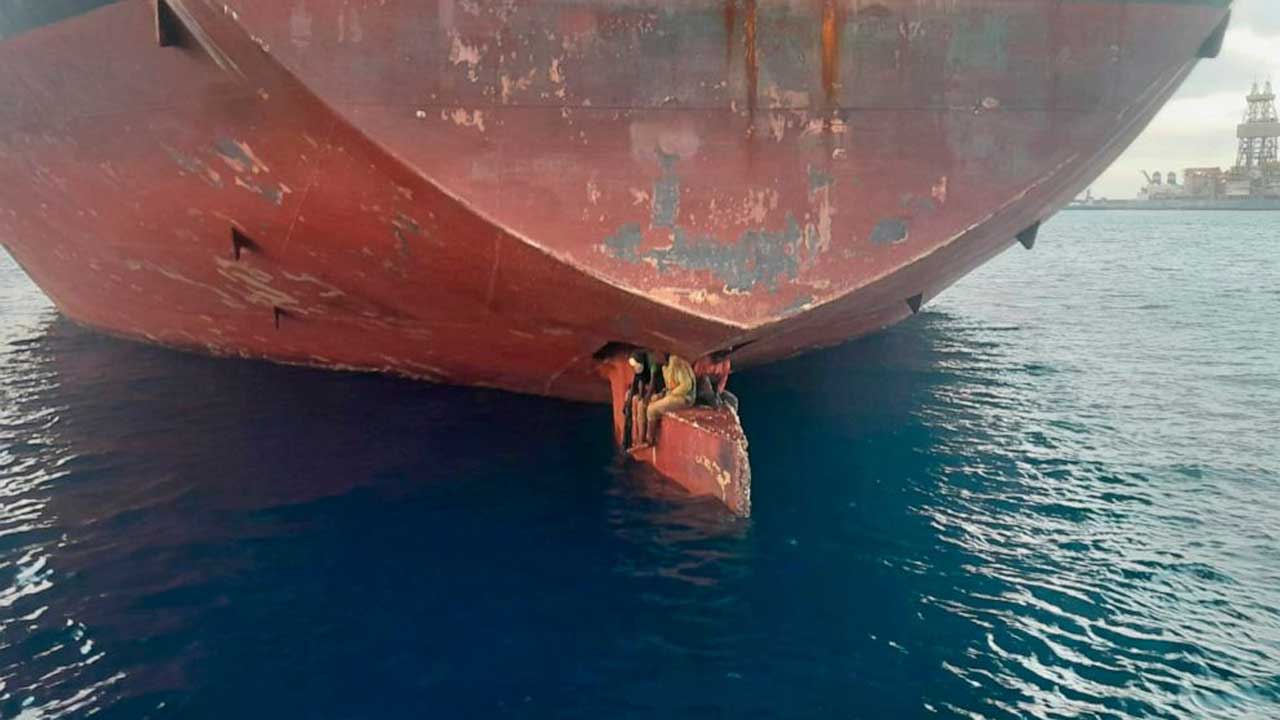
There are increased concerns about the financial and logistics implications of stowaways and other maritime crimes in Nigeria and the Gulf of Guinea (GoG).
Data obtained from the Africa Risk Compliance (ARC) Limited, showed that the cost of managing stowaways, once onboard vessels and undetected before departure, is very expensive.
According to the International Maritime Organisation (IMO), in 2021/2022 alone, the global shipping industry reported 345 stowaway incidents involving 892 individuals.
The ARC said this cost the industry approximately $5.9 million, which translates to an average cost of $17,100 per incident and $6,600 per stowaway.
The vessels affected include bulk carriers, container ships, general cargo, car carriers and other vessel types, just as these stowaways hide in perilous locations such as empty containers, cargo holds, and even the rudder area, which are spaces that are not only difficult to access but also hazardous for prolonged stays due to lack of food, water, or proper ventilation
These data were presented at the security conference organised by the Maritime Security Providers Association of Nigeria (MASPAN) and the Alumni of Maritime Academy of Nigeria (AMANO) in Lagos.
The event had the theme: “Drugs and human smuggling/trafficking: The evolving maritime security threats to ships and seafarers.”
In her presentation, Intelligence ARC Limited, Vanessa Hayford, stated that the ports in the Gulf of Guinea and vessels operating in the region are facing persistent stowaway challenges.
Citing data, Hayford said in 2021, the region was connected to 31 stowaway incidents involving 88 stowaways, stating that 42 per cent, which is 13 cases, were detected before the vessels departed from the port, mitigating the potential for more severe consequences.
Hayford noted that in 2022, the number of incidents slightly decreased to 25, involving 71 stowaways, with 40 per cent of these cases detected before departure.
She said 2023 however, saw a resurgence, with 35 incidents involving 143 stowaways, noting that although, the percentage of pre-departure detections remained steady at 42 per cent, which was 15 cases.
According to her, despite a decline in the stowaway cases in 2024, there have been 14 stowaway cases linked to the Gulf of Guinea, involving 60 individuals.
Hayford said notably, 64 per cent of these cases were detected before departure, signaling a positive trend in early detection.
She said this improvement is significant, as managing stowaway incidents at port is far less complex and costly than doing so mid-voyage or upon arrival at the destination port.
Hayford emphasised the importance of continued vigilance and enhanced security measures, especially during cargo operations, a time when stowaways are most likely to attempt boarding.
According to her, methods used by stowaways to gain access to vessels include sneaking aboard during cargo loading, using false documents to impersonate crew members, and even bribing port workers.
The President of MASPAN and Alumni of AMANO, Emmanuel Maiguwa, highlighted that West Africa, particularly Nigeria, referenced data that revealed numerous stowaway incidents at Nigerian ports, raising concerns that these stowaways could potentially be involved in drug trafficking operations.
Maiguwa noted the costly nature of stowaway incidents, which can lead to substantial repatriation expenses and operational delays.
“The cost burden of a stowaway incident can vary based on discovery location, the distance the ship has sailed to, the number of the stowaways, the off-hire period to offload, and many other factors. In cases where the ship has reached a foreign destination, repatriation expenses can easily cost hundreds of thousands of U.S. dollars, depending on the time taken to process and return and the stowaways,” he stated.
Maiguwa also elaborated on the financial implications of maritime crime, citing the high costs associated with legal battles and operational disruptions for vessels involved in drug incidents.
He said the legal and operational expenses can amount to $6 million, a significant financial burden for small operators, especially when compared to the vessel’s market value with a second value costing $15 million.
The MASPAN president cautioned that Nigeria’s maritime sector must address these issues to avoid becoming a target for increased insurance premiums and other defensive measures.
Maiguwa cautioned that compliance with the International Ship and Port Facility Security (ISPS) Code is not enough, noting that the standards alone do not secure port facilities comprehensively.
On his part, the Minister of Marine and Blue Economy, Adegboyega Oyetola, underscored the urgent need for collective action against the escalating threats of drug and human smuggling in the maritime sector.
He emphasised that this diverse gathering reflected a unified commitment to securing Nigeria’s marine and blue economy, which is increasingly under threat from transnational criminal activities.
Oyetola said recent trends indicate a troubling increase in maritime threats, particularly those related to drugs and human trafficking, noting that these activities erode Nigeria’s social fabric, destabilised communities, and challenged her law enforcement capabilities at sea.
The Minister called for the development of comprehensive strategies to address these evolving threats, stressing the importance of leveraging technological innovations, enhancing intelligence capabilities, and fostering collaboration among critical stakeholders.






